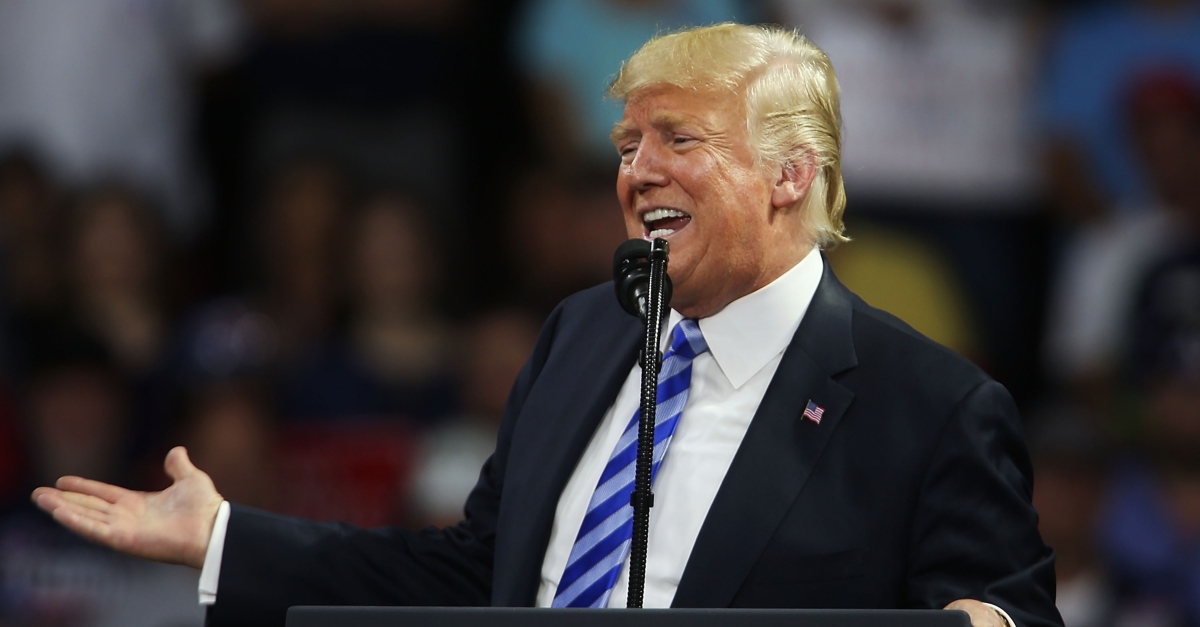
A group of 62 political heavyweights, including former Secretaries of State Madeline Albright and John Kerry, and former Director of National Intelligence James Clapper, signed their names on an amicus brief Monday arguing against President Donald Trump’s declaration of an emergency on the nation’s southern border.
Here are five quick takeaways from the filing.
- The sixty-two former U.S. government officials making up the amici curiae (a group who is not party to the action but has a strong interest in the matter) did not pull any punches in telling the court how they view Trump’s emergency declaration.
The brief outright states the group’s position that they do not believe there is any credible evidence to support Trump’s decision, stating, “there is no factual basis for the declaration of a national emergency for the purpose of circumventing the appropriations process and reprogramming billions of dollars in funding the construct a wall at the southern border, as directed by the Presidential Proclamation of February 15, 2019.”
- The group leans heavily on figures and statistics put out by the Trump Administration to back their argument that the numbers don’t justify an emergency declaration.
First, the group writes that “according to the administration’s own data, the numbers of apprehensions at the southern border through the end of fiscal year 2018 were near forty-year lows,” adding that “the overall trend [of apprehensions] continued to exhibit a dramatic decline over the last fifteen years in particular.”
They then went on to cite that the “administration’s own most recent Country Report on Terrorism, released only five months ago, found that ‘there was no credible evidence indicating that international terrorist groups have established bases in Mexico, worked with Mexican drug cartels, or sent operatives via Mexico to the United States.”
- The group used Department of Justice statistics to bolster their argument that a wall would not stop drugs from coming into the U.S.
They support their argument by once again using the administration’s own statistics, quoting from the Justice Department’s 2018 National Drug Threat Assessment in stating, “the overwhelming majority of opioids that enter the United States across a land border are carried through legal ports of entry in personal or commercial vehicles, not smuggled through unauthorized border crossings.”
- They claimed the situation on the border does not require the use of armed forces, and that a wall would be unnecessary to support that cause anyway.
The brief stated that, historically, the deployment of the National Guard at the border has been “solely to assist the Border Patrol when there was an extremely high nuber of apprehensions, together with a particularly low number of Border Patrol agents.” They noted that Border Patrol currently has “historically high staffing and funding levels” while “apprehensions – measured in both absolute and per-agent terms- are near historic lows.”
- They concluded by using President Trump’s own words against him.
Just before concluding the brief, the group notes that President Trump’s own statements have “strongly suggested, if not confirmed, that there is no evidence supporting the administrations claims of an emergency.” They then quote remarks made by Trump in February where he stated, “I didn’t need to do this. But I’d rather do it much faster,” in relation to his emergency declaration.
[Image via Spencer Platt/Getty Images]